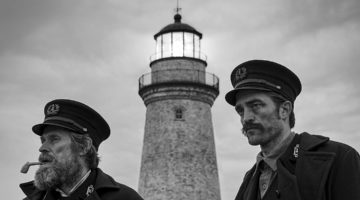Review: Boyhood
Richard Linklater’s masterful familial epic Boyhood spans 12 years, runs nearly three hours in length, and flies by in the blink of an eye.
Such is life, and especially growing up. Boyhood, a film indeed over a decade in the making, is a simple, poetic, and beautiful journey that follows Mason Jr. from age six to 18, from elementary school to college, from precocious to prideful, from one house to the next to the next.
Ellar Coltrane is young Mason, a dewy-eyed and instantly captivating individual who we watch mature before us. Lorelei Linklater (Richard’s daughter) is his older sister, Ethan Hawke is their sometimes distant father, and Patricia Arquette is their hard working mother, with whom they spend a majority of their time. All of the actors met a few days every year for 12 years in order to complete this authentic and undeniably intimate portrait of a Texas family navigating through an often harsh and complicated world.
This ambitious film has had an enchanted existence it would seem, with Coltrane maturing into a curious, artistic teenager and indeed a talented actor and compelling screen presence. He stuck through – as a six-year-old, you can’t really be forced to commit to a project that will run the next dozen years – as did the rest of the cast and crew. For those keeping track, the filming started in 2002, which was after Before Sunrise came out with Hawke and Julie Delpy; the next two films in the heralded trilogy were made before Boyhood would be completed.
With his innocent eyes and (frequently) shaggy hair, Mason’s milestones and accolades aren’t triumphed by Linklater. Instead, we watch through Mason’s eyes the more private, seemingly mundane moments that comprise lasting memories and forever influence. Early on, we watch as Mason is teased lovingly by his sister, as he spies on his bickering divorced parents, as his dad drives him around and his mother works and instills discipline.
Later on, we sit in with him as he goes on dates, has drinks with friends, and toils away in darkrooms.
He is of course influenced by his parents. Mason Sr., is a man-child not quite ready for responsibility, but still possessive of a big heart. Mason’s mother Olivia is heading back to school while working and making less-than-stellar choices with men.
And then time goes by.
It is without fanfare or even declaration that the months and years pass. Linklater opts of out (most) birthdays and anniversary parties to ground you in a time, and trusts in the viewer to follow. The choices of music certainly help, and we do see Mason and Sam work under their father’s direction to campaign for President Obama in 2008. There is a Game Boy and Wii, there is MTV and overseas wars, CollegeHumor and Lady Gaga..
That Mason Sr. drives a 1968 GTO doesn’t say much about the time, only him – he is stuck in time.
He grows, eventually, as does everyone else, but not in necessarily predictable and certainly not in formulaic ways. Mason Sr. and Olivia are flawed yet earnest characters, and their actions (and inactions) affect their children, who at times have blissful existences and at others are plagued by instability and disregard. The highs and lows of all four are felt in equal measure, and it would seem unlikely that someone in the audience doesn’t know one of them; everyone can relate.
And that may be the greatest triumph of the truly genius Boyhood. It is some parts an experimental art house film, and some parts a mainstream drama. For Coltrane and his family as well as Linklater and his, it is part documentary, but it is also a mirror that will reflect the lives of so many. Importantly, it is an accessible and beautifully shot movie for everyone, maintaining a runtime of major blockbuster but without ever becoming exhausting or boring.
It’s quite the opposite in fact; this unprecedented tale is driven by Linklater’s quintessential precise, naturalistic language, crafting discussions that are as profound as they are ordinary. Still, Linklater allows for silence to speak volumes, not only as Mason in particular interacts with the mysterious world around him, but as he listens to though who may or may not know what they are talking about. We see not just what Mason’s sees, but we see how he looks at everything; we just don’t quite know what he is thinking.
It is driven by characters, by their conversations, but still bounded by plot. It’s a simple plot, but nonetheless a plot: that is, growing up.
And like growing up as a child, or watching your child grow up as a parent, Mason’s journey goes by fast – too fast. And when it nears the narrative end, like his mother, you’re left feeling bittersweet, proud and sad and reflective and struggling to let go.
There is tender humour and tragic heartbreak, incredibly intimate expressions of passion and vast landscapes of beauty and serenity.
Boyhood is a masterpiece of moviemaking and storytelling, a timeless tale about time flowing by, and an indelible, instant entry into the canon of classic films.
[star v=5]


